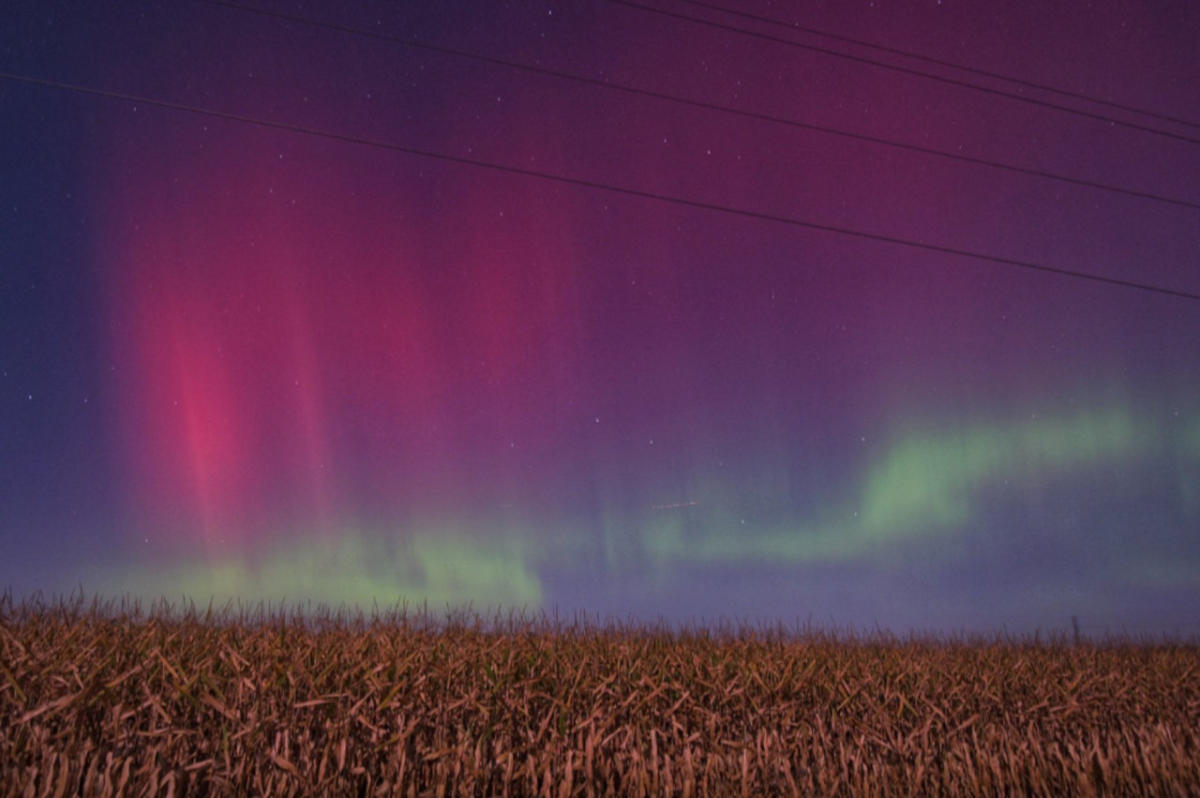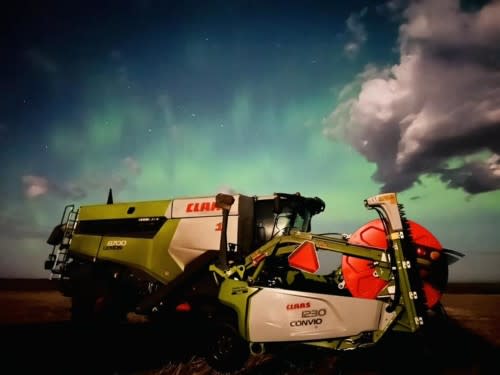


The aftermath of a strong solar flare over the weekend gave rise to back-to-back opportunities to see the northern lights across Canada early this week — and the display Monday night did not disappoint.
DON’T MISS: How do the Northern Lights shine? Here’s the science behind auroras
“Whoa. Was not expecting the Aurora to look this good near Guelph,” tweeted The Weather Network’s Storm Hunter, Mark Robinson out in southern Ontario Monday night.
A powerful solar flare burst forth from the Sun on Saturday morning, sending a coronal mass ejection (CME) racing toward Earth. Monday night’s dazzling skies arrived just a few days after a similar storm triggered auroras overnight Thursday into Friday.
MUST SEE: The magical experience of seeing the aurora for the first time
The energy of a geomagnetic storm ionizes gasses in our planet’s upper atmosphere, which glow and dance as a spectacle of coloured lights against the night sky.
Experts rate the intensity of geomagnetic activity on the Kp Index, which ranges from Kp 0 on the low end to Kp 9 on the high end. Values around Kp 7 are sufficient for nationwide aurora visibility.
This latest geomagnetic activity was expected to reach Kp 6, according to the U.S. Space Weather Prediction Center (SWPC), making the northern lights visible all the way into southern Ontario.
As always, successful aurora viewing ultimately comes down to the weather. With vast stretches of clear skies across Canada overnight Monday, and into Tuesday morning, there were plenty of chances to catch a glimpse of the northern lights.
Here’s a closer look at what Canadians saw as the skies sparkled brightly across the country.

Veregin, Saskatchewan | Colleen Broda/Facebook